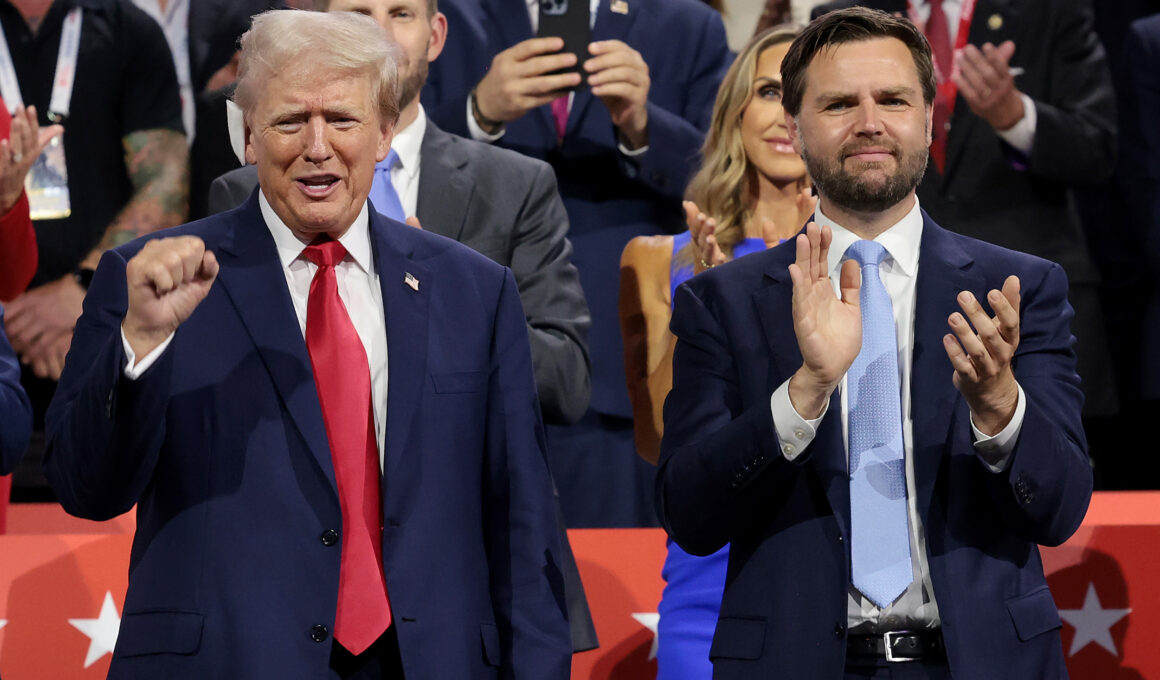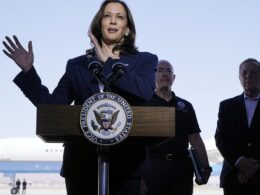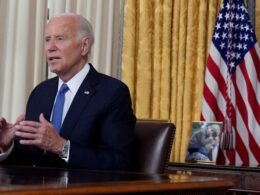Reports have emerged that former President Donald Trump may regret picking Ohio Senator JD Vance as his running mate, but it’s not too late to change the ticket.
Trump’s communications director, Steven Cheung, denied reports that Trump was second-guessing his choice of running mate.
“President Trump is thrilled with the choice he made with Senator Vance, and they are the perfect team to take back the White House. And any reporting to the contrary is nothing but ridiculous fake news from either non-existent sources or individuals who have no idea what’s going on,” Cheung previously told Newsweek. “Meanwhile, Democrats are in complete disarray after their coup that forcibly removed Biden from the campaign, proving they are the real threats to democracy.”
But if Trump did want to replace Vance, he could, according to Mitchell Brown, a political science professor at Auburn University.
“There’s a clear deadline for filing to be on a ballot in each of the states,” Brown told Newsweek via telephone on Friday afternoon. She said that as long as a new vice presidential candidate is picked before that deadline, they can replace Vance.
But it wouldn’t be as simple as Trump just choosing a running mate the second time around.
“If there’s a vacancy in one of those positions on the ticket, then the party can re-vote,” Brown said.
Brown was referencing the Republican National Committee’s (RNC) rules adopted in 2020 which state that a vacancy of the Republican presidential nominee or their running mate may be filled by the RNC or the RNC could reconvene its national convention to vote for a replacement.
The politics professor listed a couple of concerns with Trump switching vice presidential candidates: “Stability, the time it takes to gear up a campaign once you have your nominees and run a good campaign.”
However, she said, “Trump has proven himself over and over again to be somebody who benefits when he’s got a lot of media and public attention.”
“My presumption, frankly, when I started hearing rumblings about this was that [Vice President] Kamala Harris was getting a whole lot more attention than he was. And this is a way to call more media attention back to him. And so even talking about replacing Vance is a strategy for getting more media attention,” Brown added.
While Vance may have trouble pulling in independents and people on the fence about Trump, Brown said that she thought Vance “was a pretty slick selection because he brings a lot of things with him that are attractive to people who are attracted to Trump.
“He brings with him that he is a veteran, he’s from Ohio, so he’s part of the Rust Belt, he’s a pretty young guy, he’s charismatic, he’s a fairly attractive guy. In a lot of ways, I think he has a lot of qualities that, though different politically, but a lot of qualities, personally, that we saw that was attractive to people from a populist perspective when [former President] Bill Clinton first came on the national scene.”
Trump picked Vance as his running mate at the Republican National Convention in Milwaukee on July 15. On July 21, President Joe Biden dropped out of the race and endorsed Harris for the Democratic Party‘s presidential nominee after weeks of interparty fighting among Democrats on whether Biden should pass the torch following his debate fiasco against Trump on June 27.
The former president stood by Vance while appearing for a phone interview on Fox & Friends on Thursday, calling the senator “fantastic.” He said that “it wouldn’t have mattered” if Harris was tapped before he announced his running mate, which Vance’s press office referred to when asked by Newsweek for comment on Friday afternoon.
Meanwhile, Vance is the first non-incumbent vice presidential nominee to have a net-negative favorable rating after a convention since 1980, according to poll numbers. His rating was at -6 points after the convention, according to CNN senior data reporter Harry Enten.
“I have gone all the way back since 1980. He is the first guy, immediately following a convention—a VP pick—who actually had a net-negative favorable rating,” Enten said on CNN’s Erin Burnett OutFront on Tuesday night. “The average since 2000 is +19 points. JD Vance [is] making history in the completely wrong way.”
Uncommon Knowledge
Newsweek is committed to challenging conventional wisdom and finding connections in the search for common ground.
Newsweek is committed to challenging conventional wisdom and finding connections in the search for common ground.








